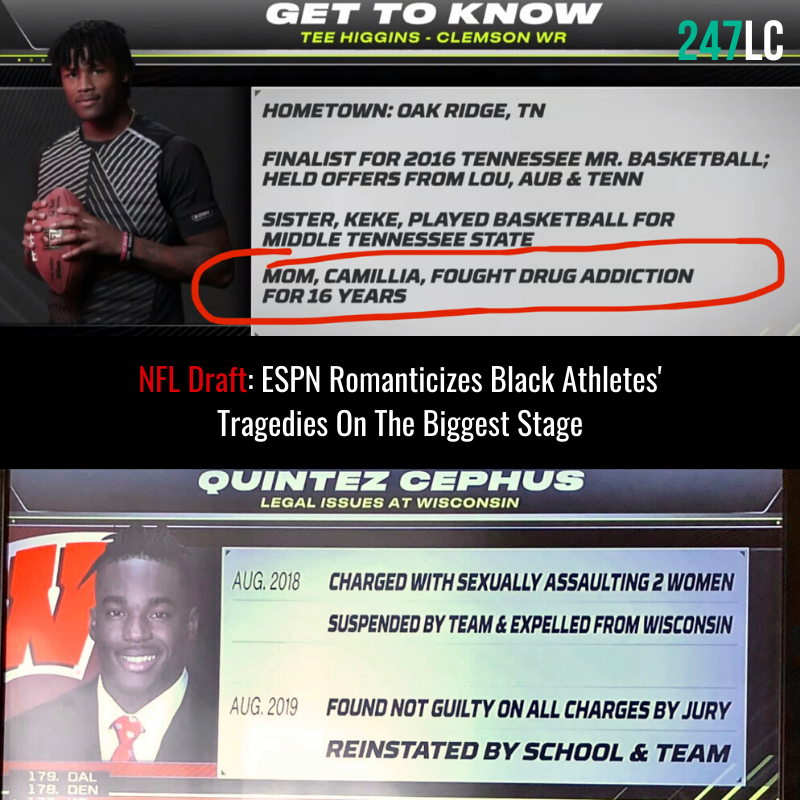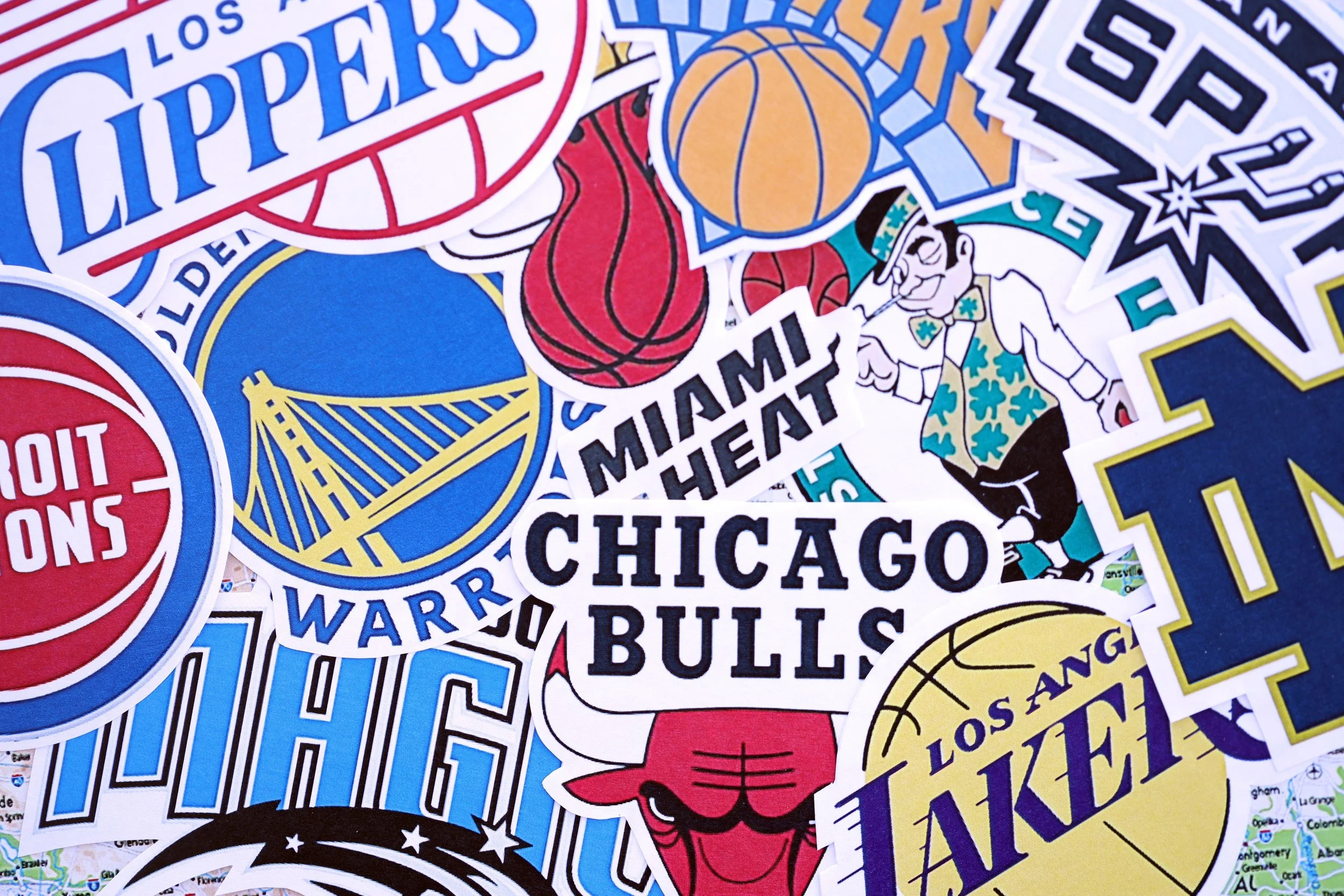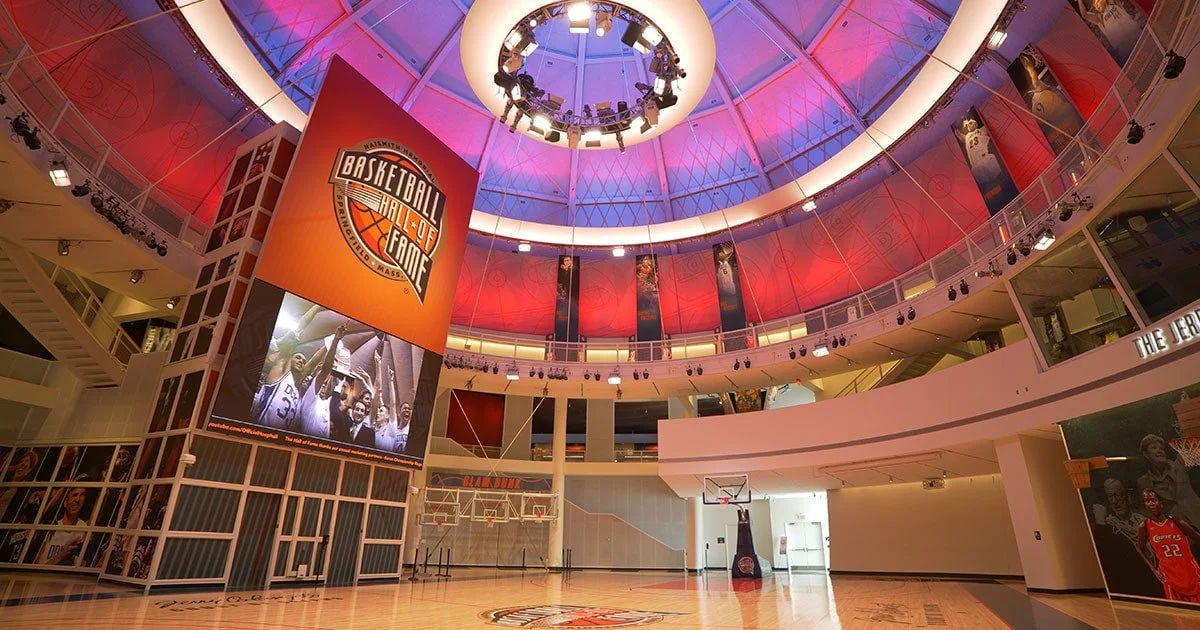NFL Draft: ESPN Romanticizes Black Athletes' Tragedies On The Biggest Stage
By: Baigen Seawell
With the constant news of the global pandemic, the NFL Draft was our escape…something to let us forget the craziness that was going on around us. But what’s up with all of the morbid backstories?
We start with Tua Tagovailoa, who struggled with injuries throughout his college career at Alabama. This started conversation on whether or not Miami would pass up on another QB opportunity like they did Drew Brees over two decades before.
The story of overcoming adversity made for a great narrative, we loved to see it.
But then it got weird…
The first comment I picked up on was at the 11th pick overall: Mekhi Becton, a 6’7” OT from from Louisville. The announcers pointed out his speed, size, followed up with a comment discussing his weight being linked to his mother’s occupation of catering in soul food.
This remark was insensitive, but wasn’t nearly as eye opening as the talking points that would follow.
Car accidents, coronavirus, conduct violations, drug addiction, ESPN and the NFL made it a point to highlight the tragic upbringing of as many prospects as possible, and nearly all of them were black.
At the close of the draft, there were over 20 tragic backstories from athletes. It would be posted at the bottom of athletes’ stat line like a trivial fun fact, and shock value would transform to desensitization.
But why are tragic backstories so clickbait?
THERE’S BEAUTY IN THE STRUGGLE
J. Cole said it best: “There’s beauty in the struggle.” The “Rags-to-Riches” story is as old as time. Tragedy and struggle are socially and psychologically linked and ingrained in media’s culture. A sense of satisfaction rushes over us when we see someone who faced so much hardship to achieve their goals.
Struggle brings more traffic to a story than privilege, especially in sports; we find interest in the rise, fall and rise again of a Vick over the streamline of a Manning or Rodgers. Though the latter faced some minor conflicts through their careers, the former has a much harrowing tale that becomes something that can have a full docuseries created around it.
Black athletes in particular face adversity regularly on their road to the top, and after the goal is met. Criticism from analysts, financial hardships, and on and off the field conduct add onto their troubled past. For them, it becomes fuel to go harder, and prove critics wrong, for mainstream media, it becomes an irresistible story, no matter how minor
This isn’t ESPN’s first time glamorizing tragedy; reporter Mina Kimes’ most popular story is DeAndre Hopkins’s mother, who was an exotic dancer, drug dealer, and finally, gruesomely faced an assault from her then-boyfriend’s mistress. It became one of the most talked about backstories in 2019, despite him Watson being in the league for six years already.
The Jerry Jeudys, Kristian Fultons and Jordan Loves were sprinkled with stories of tragedy, which overshadowed the largest success that they met for the night: being drafted by a league that only drafts less than five percent of the draft eligible population. Lest we forget where we came from on the way, but it’s not 100 percent of our makeup.
These men are more than their backstories, they’re not pinned to their stats on the field or their upbringing. There’s an importance of highlighting the successes and aspirations they have moving forward. Though tragedy makes a good backstory, triumph and continued success makes for something with a much better shelf life.







